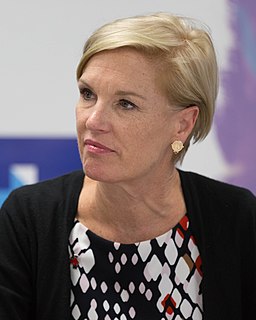A Quote by Thomas Pogge
If the Health Impact Fund were to be instituted, a single company would be in charge of a medical product all the way from its conception to the health improvements realized by actual patients. The company would be paid for health impact, and it would have to arrange the entire pipeline in between - all the steps of invention, of clinical testing, of getting marketing approval in many different countries, of wholesalers and retailers and prescriptions and so on - in a holistically optimal way.
Quote Topics
Related Quotes
With the Health Impact Fund, the innovation is paid for separately, through publicly funded health impact rewards, and the product is sold at the cost of production to all. Here, the cruel injustice of preventing the poor from buying at cost - evidenced by today's suppression of the trade in generic versions of patented medicines - would no longer be needed.
Companies are actually much better than governments and other bureaucracies at organizing in a holistically efficient way the extremely complex path from the examination of molecules all the way to the delivery of medicines to patients. Already in the conception and selection of research projects, companies would anticipate all the challenges down the line that they will need to overcome in order to achieve actual health impact. Bureaucratic organizations, by contrast, are notoriously bad at this sort of optimizing.
To improve global health, it's not enough just to have a really good new product and to obtain marketing approval. You still need to market the product and bring it to patients, follow up, create the infrastructure, and so on - the whole pipeline, the network. That's something that companies are extremely good at: organizing a whole pipeline in a cost-effective way.
Competing companies evolve toward efficiency as the more efficient ones profit and expand while those who fall behind fail. And companies being efficient and profiting under the Health Impact Fund, this is exactly what we want, because the company's profit is directly driven by the health impact its registered products achieve.
At Planned Parenthood, we see the impact of abortion stigma firsthand, in the women who delay getting reproductive health care because they fear they’ll be labeled and judged. We see the effect of stigma on doctors, health center staffers, and others who help provide abortion services. And we see the impact in laws that regulate and restrict abortion in ways that would never happen with any other medical procedure.
I want us to be judged by the impact we have on the health of the people of Africa and the health of women. Improvements in the health of the people of Africa and the health of women are key indicators of the performance of WHO. This is a health organization for the whole world... But we must focus our attention on the people in greatest need.
I've obviously come from a health background. I was a doctor before I became a pollie and one of the things I'd like to do is to really build on the world-class health system we've got. I'm passionate about climate change because it's also a health issue. Things like extreme weather impact on people's health, the ability of our hospitals to cope, the impact on mental health, on farmers in regional areas - they're all serious health concerns.
In the domain of pharmaceuticals, we need a metric for health impact, and with this metric we can then assess the value of the introduction of a new product and pay its innovator accordingly, say on the basis of the product's measured health impact during its first ten years on the market. In exchange, innovators must of course renounce the usual rewards they are otherwise entitled to, namely the patent-protected markup on the price of their product.
The company that employed me strived only to serve up the cheapest fare that the customer would tolerate, churn it out as fast as possible, and charge as much as they could get away with. If it were possible to do so, the company would sell what all businesses of its kind dream about selling, creating that which all of our efforts were tacitly supposed to achieve: the ultimate product -- Nothing. And for this product they would command the ultimate price -- Everything.
You can think of the Health Impact Fund as a mechanism that would keep the benefits and burdens of pharmaceutical innovation for the affluent roughly as they are while massively reducing the burdens presently imposed upon the poor. This sounds like magic. But it really works because the current system is not Pareto efficient. It's a system that generates hundreds of billions of dollars in litigation costs and deadweight losses that HIF-registered medicines would sidestep. By avoiding these losses, the HIF reform can bring improvements all around - including for pharmaceutical innovators.


































